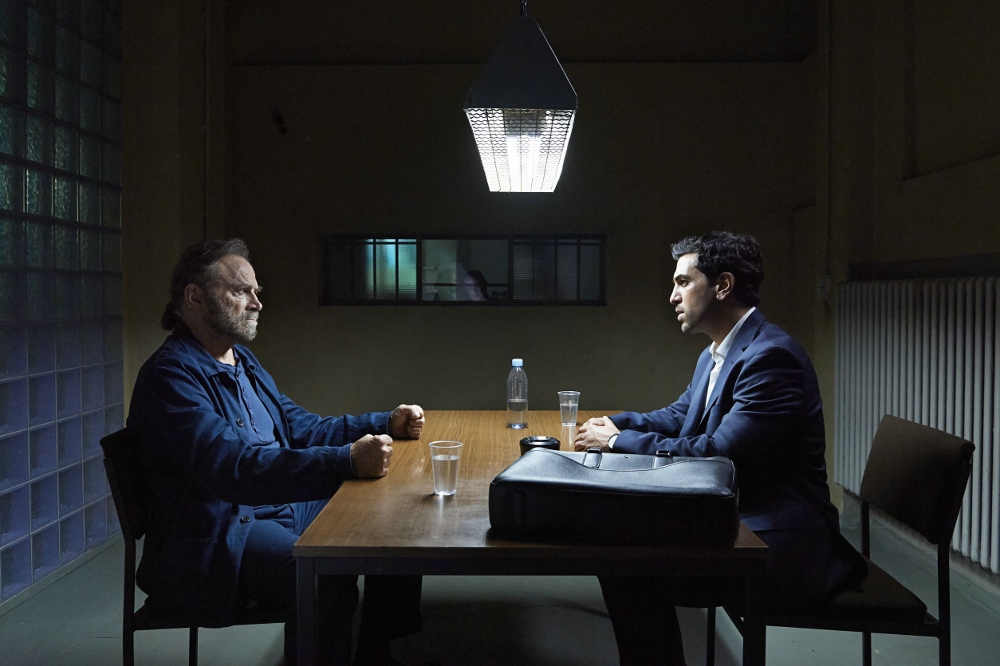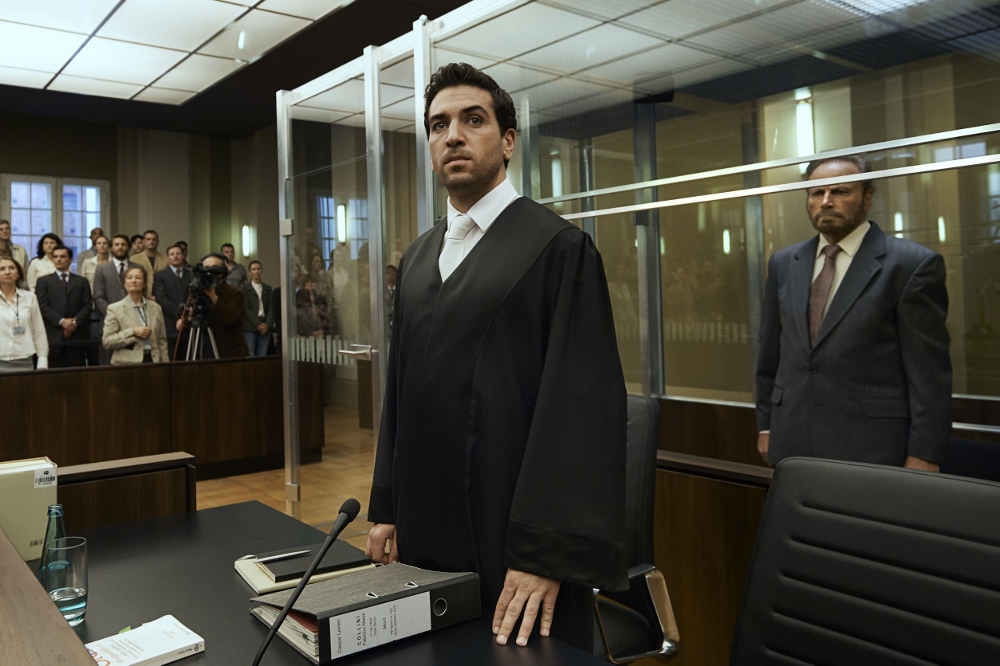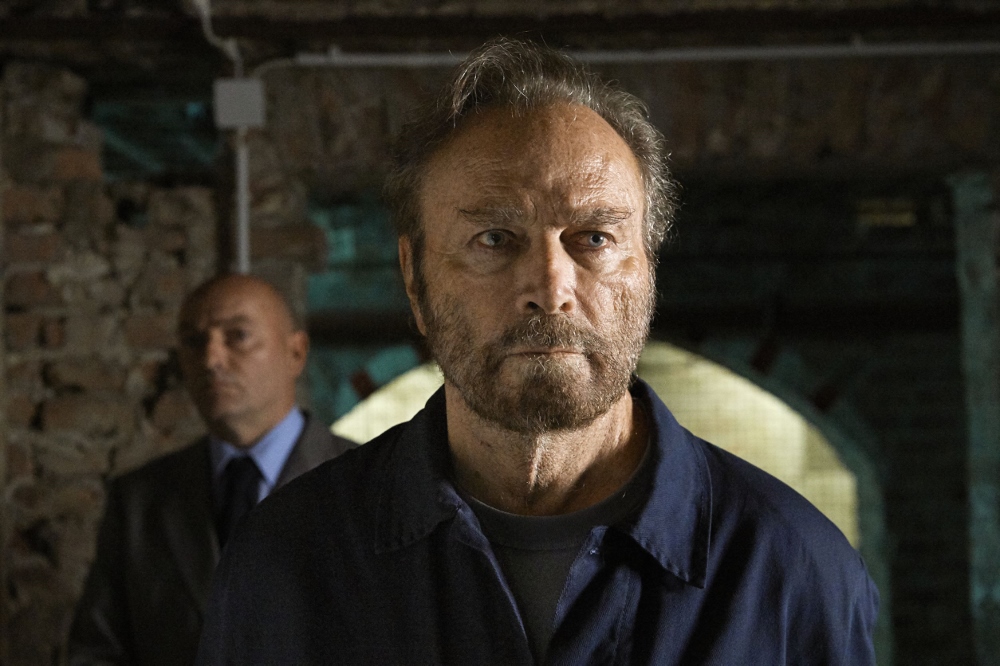
An elderly man, Fabrizio Collini, walks into an elegant hotel, and enters the Presidential Suite under the guise of interviewing its occupant. Moments later, he emerges and walks out, leaving bloody footprints in his wake. He sits down in the hotel lobby, announces that the hotel guest is dead, and remains sitting there, waiting to be arrested. A man has been killed, and his killer is known, yet in Marco Kreuzpainter’s The Collini Case, the question is not “who done it” but rather “why”; the motive is the mystery. The legal drama is based on Ferdinand von Schirach’s novel of the same name, and while the plot is fictional, its theme relates to very real aspects of German law.
Caspar Leinen (Elyas M’Barek), a young, idealistic lawyer is appointed to defend Collini (Franco Nero), but he encounters a seemingly insurmountable obstacle: Collini refuses to speak. The situation becomes more complicated when Leinin learns the identity of the murdered man: successful industrialist Hans Meyer (Manfred Zapatka). The son of a German father and Turkish mother, Leinin’s father abandoned the family when he was a boy, and following a chance encounter, Meyer took him under his wing, becoming a father figure to the boy. Leinin feels obliged to recuse himself from the case due to the conflict of interest, but his past and present become even more entangled when it turns out that the prosecutor for the case is Richard Mattinger (Heiner Lauterbach), who was Leinen’s law school professor. Mattinger encourages, and effectively challenges Leinen to remain on the case, on the grounds that as a defense lawyer he needs to separate his personal feelings from the case at hand, and the interpretation of the law.

Yet Leinin’s internal struggle remains, even as he begins to investigate the case, trying to find a defense for his silent client. Meyer’s daughter Johanna (Alexandra Maria Lara), with whom he had a romantic relationship in the past, re-enters his life, stirring old memories and emotions, as well as questioning his loyalties. Revealing information slowly, as more and more layers are uncovered, the film follows several narrative tracks, alternating between the distant past, Leinen’s boyhood in the 1980s, and the film’s present, in 2001. As seen through the golden haze of Leinin’s youth, Meyer is revealed to the viewer as a generous benefactor, who encourages and supports young Caspar, treating him as he does his own son and daughter. The film raises issues of loyalty, morality, justice and the law as Leinin investigates the case with unswerving determination to seek out the truth.
Aspects of the film relate to the German legal system, specifically, a law initiated by Dr. Eduard Dreher in 1968 that effectively enabled Nazi war criminals to escape indictment. According to the law, only the high-ranking leaders were defined as murderers, their subordinates were defined as following orders, which meant that they would be prosecuted as accessories to manslaughter rather than accomplices to murder, and thus, their crimes came under the statute of limitations and they could no longer be indicted.

Elyas M’Barek elicits the viewer’s empathy as the rookie lawyer confronting his first big case, one which turns out to have serious personal implications for him. Yet most moving is Franco Nero, who conveys the depth of his pain and anger through stoic reticence.
The Collini Case
Germany/2020/117 min/German with Hebrew subtitles
Directed by Marco Kreuzpainter; Based on the eponymous novel by Ferdinand von Schirach; Screenplay: Christian Zübert, Jens-Frederik Otto, Robert Gold; Cinematography: Jakub Beinowicz; Editor: Johannes Hubrich; Music: Ben Lukas Boysen; Cast: Elyas M’Barek, Heiner Lauterbach, Alexandra Maria Lara, Franco Nero





